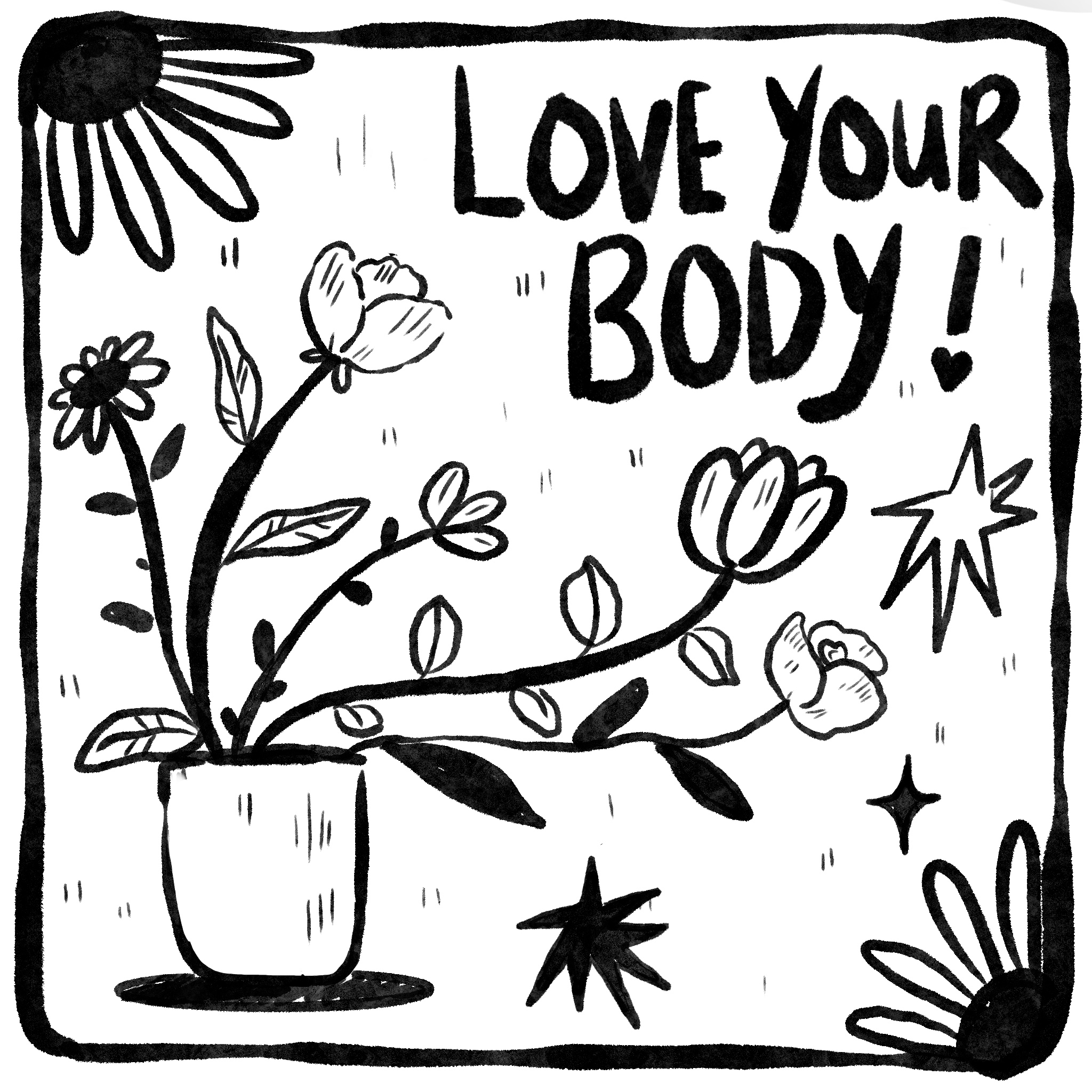Healthy self-image is key to overall well being
Editor’s note – content warning: This article explores themes related to eating disorders and other topics some people may find disturbing. Reader discretion is advised.
Freshman Danya Levya has always been “the skinny one” in her family. Growing up, they nicknamed her Flaca because no matter how much she ate, she seemed to never really gain any weight. When Leyva hit puberty, a classmate once remarked on her wide hips, referring to her lower limbs as “chicken legs” – the comment stuck with her for a long time.
“It’s so silly looking back now because we were all in the awkward stages of puberty,” Levya said. “But I still thought about that comment all the way through my freshman year of high school.”
Although Levya still experiences low moments, she has worked to improve her self-image and makes it a point to practice self-care whenever she finds herself thinking negatively.
“I take a shower, and I’ll put on my favorite outfit pieces that make me feel confident and attractive and turn on music,” Leyva said. “Nowadays most of the times that I feel uncomfortable in my own body is because I’m either in a depressive state or I’m on my period.”
In a society with ever-changing standards of beauty, some people may find it difficult to love their body. Women’s bodies have been scrutinized since time immemorial , and although the idea of body positivity is celebrated today, many women still struggle with issues related to body image.
Today, there has been a large cultural shift to be more body inclusive and what language to use around the topic. Some social media trends urge people to show off their bodies or go au naturale. While definitions of beauty are much broader and more progressive now than in years past, there is still an unspoken “understanding” of what the “ideal” body type is – even young children are expected to meet society’s standards of what’s considered “healthy.”
Many life-long body insecurities come from comments made during childhood. Third-year psychology student Airam Solorzano recalls her mom telling her she was fat on multiple occasions. Solorzano became incredibly self-conscious about her calorie intake, to the point she said she developed an eating disorder.
“This was something that was really traumatic because I would cry and starve myself because I felt ugly,” Solorzano said. “My weight fluctuates year round depending on a lot of things: work stress, finals, and personal family problems.”
In addition, the messages some people receive from their families, commercialization of weight loss supplements and so-called “fad diets” can also contribute to a distorted self-image and an unhealthy mindset around health and wellness. And while body-mass index (BMI) scales have been shown to be inaccurate, some medical professionals still refer to them to start the conversation about a patient’s overall health. In children, for example, BMI fails to differentiate between fat and muscle.
I still remember my conversations in the doctor’s office and my mom putting me on diets, forcing me to exercise when I was just nine years old. This caused a disconnect between us because she didn’t understand why I couldn’t be as small as her.
I was tempted several times to immerse myself in diet culture to make her happy, but I held onto the mindset that I am built after my dad. I decided I’d create my own mindset with exercise, and diet in a healthy way once I’m ready.
Personally, I don’t believe that being “skinny” means being healthy. Some bodies are built to excel at different things. Sports such as swimming or weightlifting require more muscle than a petite figure.
“I’m currently in the process of learning to love myself for who I am. I used to think that if I wasn’t skinny I couldn’t be pretty, however all of that is changing,” Solorzano said.
“I started my fitness journey, wearing clothes that I liked and fit me because it’s not about you fitting into clothes, it’s about clothes fitting you.”
Seeing photoshopped and edited pictures on social media made Solorzano feel like she’s not enough. But seeing girls who post pictures in a natural state makes her feel more comfortable with posting what she looks like without filters and makeup.
“One thing that I’ve found is just not caring what other people think, ultimately your image of you is what matters,” Solorzano said. “People will always have something to say regardless of what you wear, weigh, or do.”

